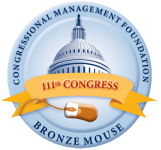
| What Comes Next? |
 |
 |
|
Earlier this week, the Supreme Court upheld the health reform law, bringing us closer to the day when every American will have access to excellent, affordable health care. The Supreme Court’s decision creates an opportunity to pause and reflect on how much we have achieved over the past few years. Through health reform, we have protected Americans against being refused health coverage simply because they are sick or have a preexisting condition. We have ensured that tens of millions our fellow citizens will gain access to excellent health care. We have made it easier for individuals to shop for health insurance by establishing new competitive, state-based marketplaces. We have protected women and minorities against being charged higher, discriminatory premiums. And we have worked to ensure that everyone takes responsibility for his or her health coverage so that irresponsible free riders who choose not to insure themselves and then have an unfortunate illness or accident won’t stick you with the bill (as they have been doing). Further, we have enabled families to continue to provide healthcare for their children even after college or when they are trying to get on their feet in the working world. We have required that insurance companies refund you if they raise premiums without providing more medical care. And because benefit caps are forbidden, insurance companies can no longer drive a family into bankruptcy because of an unfortunate expensive illness. The question we must ask ourselves now is this: What next? Every major piece of American legislation ever passed, from Social Security to Medicare to the Civil Rights Act, has been refined and improved over the years. So, too, the health reform law will be refined and improved as we gain experience with it. We must, for instance, take strides to address the aspects of our health care system that the reform law did not address fully, such as the provision of long-term care and the coordination of health care among providers. Some in Congress and in state governments would prefer not to face these challenges. Even now, they are attempting to reopen the bitter political debates of the last few years – trying to move us backward to a time when America was even more divided and when we had not embraced the ideal of guaranteeing excellent health care to all of our citizens. The Supreme Court’s decision ensures that these cynics will be left behind by history. It is time to move forward. Putting Cops Back on the Beat in Trenton The Trenton Police Department is facing challenging times. Funding cuts have left the department at staffing levels not seen in the city since 1932. The challenges are very real, but this week, we received good news. On Monday, I announced that the city has received a $3 million grant to put 12 police officers back on the beat. I was pleased to work with the Trenton Police Department and the U.S. Department of Justice to secure these funds. Much work remains to be done, but this represents a major step toward protecting the safety of Trenton residents. Protect Your Identity Identify theft is a serious crime that can wreak havoc with your finances, credit history, and reputation – and it can take time, money, and patience to resolve. The Federal Trade Commission estimates that as many as 9 million Americans have their identities stolen each year, and it has created a new website and guide to help you prevent identity theft and repair the damage if your identity is stolen. Among the FTC’s tips:
Sincerely, Rush Holt |















